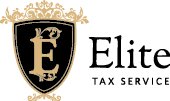Now that tax season is upon us, we all want to know what the Canada Revenue Agency (CRA) has planned. After all, our tax preparation depends on their policies.
According to CBC News, the CRA is going after tax cheats by implementing a new policy they are hoping will discourage tax evasion by recording the fingerprints of Canadians charged with a tax crime.
The policy means fingerprints of all accused tax evaders will be kept in the Canadian Police Information Centre database, which is available to Canadian police as well as foreign agencies such as the U.S. Department of Homeland Security and its border officers.
“Introducing a mandatory fingerprinting policy would serve as a powerful deterrent to those considering committing a serious tax offence or those who may contemplate reoffending,” according to an internal memorandum explaining the new policy.
This measure is just one part of the CRA’s initiative to go after tax cheats; offshore tax evaders are being targeted in particular. It includes $444 million earmarked in last year’s budget to combat tax evasion over five years. Tracking is set to begin April 1, with CRA spokesman David Walters saying the agency will rely on police officers to collect the prints.
Fingerprinting has several advantages when trying to catch tax dodgers; it aids in catching anyone accused of tax evasion who has failed to appear for trial or sentencing. It also allows police a bench warrant for the arrest of an individual alleged to have committed a tax crime, including any who may attempt to leave the country to avoid facing penalties. Tax evaders can now expect to be stopped at the border if they are travelling to the U.S. or overseas.
One critic is Dennis Howlett, executive director of the non-profit group Canadians for Tax Fairness. Howlett questions the efficacy of a fingerprinting measure based on the CRA’s tendency to not turn to the justice system when going after tax cheats.
“They are not charging many people, so the evidence would seem to indicate they’re mostly settling out of court,” Howlett said in an interview, “They do need to take some cases to court to clearly establish some precedents and to strengthen their negotiating hand when they do settle out of court. We’re a bit surprised there aren’t more charges.”
Mr. Howlett also criticized the CRA for not pursuing wealth-management firms that facilitate offshore tax evasion. Corporations that may be holding profits in offshore tax havens to evade taxes at home are also flying under the radar.
Only time will tell if this new policy will have the desired effect. Until then you would be wise to be open and honest when it comes to your taxes each year. If you need help with your tax preparation, look no further than Elite Tax. Give us a call today at 905-597-0717 or see our tax preparation services here.
